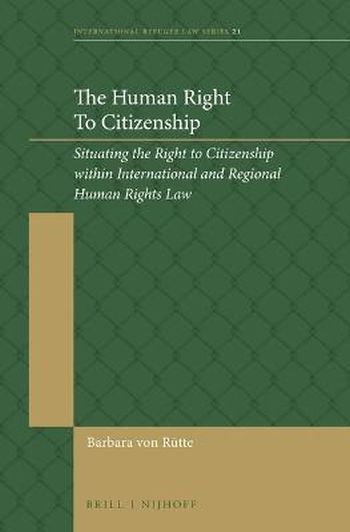
This book offers a comprehensive analysis of the right to citizenship in international and regional human rights law. It critically reflects on the limitations of state sovereignty in nationality matters and situates the right to citizenship within the existing human rights framework. It identifies the scope and content of the right to citizenship by looking not only at statelessness, deprivation of citizenship or dual citizenship, but more broadly at acquisition, loss and enjoyment of citizenship in a migration context. Exploring the intersection of international migration, human rights law and belonging, the book provides a timely argument for recognizing a right to the citizenship of a specific state on the basis of one's effective connections to that state according to the principle of jus nexi.